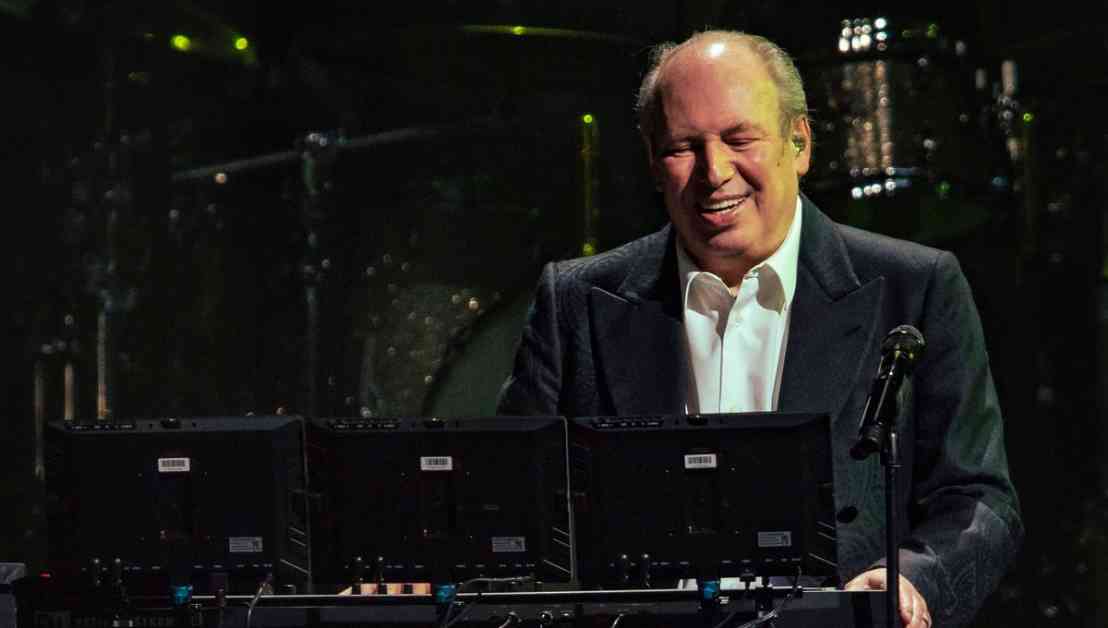Hans Zimmer, the renowned composer of film music, celebrates his 67th birthday on September 12, 2024. Born in Frankfurt, Germany on September 12, 1957, Zimmer’s musical journey began at a young age when he developed a passion for music. Despite not having formal training, he taught himself to play the keyboard and synthesizer in his bedroom. His career took off in the 1970s when he moved to London and started working on commercials and albums for pop groups, including the Buggles, with whom he created the hit song « Video Killed the Radio Star. »
Zimmer’s genius lies in his ability to blend genres and instruments seamlessly. He merges electronic and orchestral elements, incorporates percussion from around the world, and creates unforgettable themes that resonate with audiences. One of his most iconic works is the music he composed for « The Lion King, » which earned him his first Oscar. His approach to composing music for films is straightforward yet profound – he immerses himself in the director’s vision, creating music that elevates the storytelling experience. Zimmer doesn’t just write music; he crafts auditory experiences that leave a lasting impact.
In addition to his contributions to the world of cinema, Zimmer has also delved into diverse projects, from composing music for video games to developing software for film music. His innovative spirit and dedication to pushing the boundaries of music have solidified his reputation as one of the most influential composers of our time.
Early Life and Musical Beginnings
Hans Zimmer’s early years were marked by a deep love for music and a relentless drive to pursue his passion. Despite not having formal training, Zimmer’s innate talent and determination propelled him to teach himself how to play musical instruments and experiment with different sounds. His time spent in his bedroom tinkering with keyboards and synthesizers laid the foundation for his future success in the music industry.
Zimmer’s decision to move to London in the 1970s was a pivotal moment in his career. It was there that he honed his skills by working on various projects, from commercials to pop albums. His collaboration with the Buggles on « Video Killed the Radio Star » catapulted him into the spotlight and showcased his versatility as a composer. Zimmer’s ability to adapt to different musical styles and genres set him apart from his peers and paved the way for his illustrious career in film music.
The Art of Film Composition
What sets Hans Zimmer apart as a composer is his unique approach to film composition. Instead of simply creating background music for movies, Zimmer immerses himself in the director’s vision, using music to elevate the emotional impact of the storytelling. His ability to capture the essence of a film and translate it into music is what makes his work so compelling and unforgettable.
Zimmer’s collaborations with acclaimed directors such as Christopher Nolan, Ridley Scott, and Gore Verbinski have resulted in some of the most iconic film scores in recent memory. From the haunting melodies of « Inception » to the epic soundscapes of « Gladiator, » Zimmer’s music has the power to transport audiences to different worlds and evoke a wide range of emotions. His mastery of blending electronic and orchestral elements creates a unique sonic experience that enhances the cinematic narrative.
Beyond Film Music
In addition to his work in film composition, Hans Zimmer has also ventured into other creative endeavors, showcasing his versatility and innovation as a musician. His foray into the world of video game music has led to collaborations with top gaming studios, creating immersive soundtracks that enhance the gaming experience. Zimmer’s ability to adapt his musical style to different mediums demonstrates his adaptability and willingness to push boundaries.
Furthermore, Zimmer’s work in developing software for film music underscores his commitment to pushing the boundaries of music technology. By creating tools that streamline the composition process and enhance the creative possibilities for musicians, Zimmer is shaping the future of film music and inspiring the next generation of composers.
In conclusion, Hans Zimmer’s contributions to the world of music are nothing short of extraordinary. His ability to transcend genres and create timeless melodies has solidified his legacy as one of the greatest composers of our time. As he celebrates his 67th birthday, we reflect on the rich and exceptional universe that Zimmer has created through his music, and eagerly anticipate the next chapter in his illustrious career.

